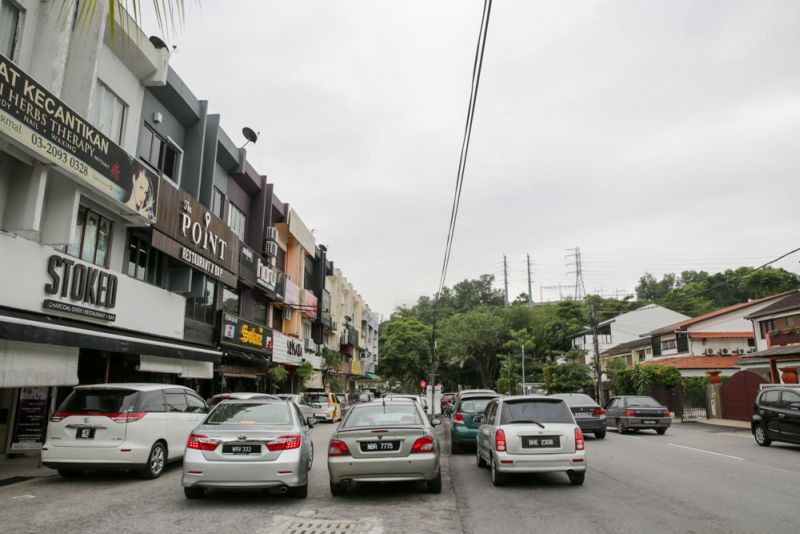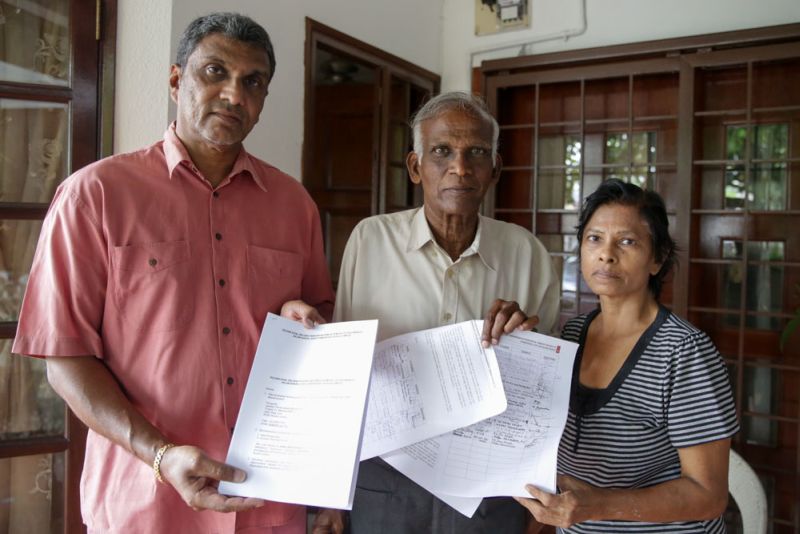KUALA LUMPUR, Feb 19 — Owners of properties along Jalan Kasah in the over four decades-old Medan Damansara neighbourhood can now rest assured that their homes will not be converted for commercial use, according to KL City Hall’s (DBKL) planning department.
Department director Datuk Sahrom Ujang told Malay Mail Online that DBKL made the decision after the majority of homeowners objected to the plan in a survey handed out recently.
He said DBKL was also aware of some owners already carrying out commercial activities from the homes and warned that action would be taken against them.
“There were some residents who met DBKL officers to express their desire to convert their buildings. However, as the majority residents said they do not want to allow such conversions, the approvals committee chaired by the Kuala Lumpur mayor agreed not to allow it,” Sahrom said when contacted.
“Yes, we are aware of some homes being used for commercial activities. We will take enforcement action against them,” he added.
When met yesterday, residents of Jalan Kasah said 19 homes in the area had received a survey form from DBKL asking if they had reservations about allowing the residences there to be converted into commercial buildings by its owners.

Alarmed by what they believed to be a strongly-worded survey, several homeowners banded together to collectively object to the suggestion.
Retired economic consultant N. Thiran, 72, said he has been living in the neighbourhood since it first opened in 1971.
He said he has over the years stayed a passive observer of how the misty hillsides surrounding his property were converted into the concrete jungle it is today and the commercialisation of nearby Bangsar but felt it necessary to speak out when he realised his home may be next.
“The changes were gradual but everything was outside before this. But now it has come right to our doorstep. When it comes to your doorstep, it's a new challenge,” he told Malay Mail Online.
Thiran said he and his wife Sarojini Pakainathan, 71, received their letter on February 5 with a deadline to respond by February 19.

Their main gripe, Thiran said, was that the area lacked the infrastructure necessary for the commercialisation plan.
“Come by any Thursday or Friday evenings, and you will see how congested it get. Sometimes they even park right in front of my gate. Our road here is small. I have seen back alleys in other townships with wider roads, so it is ridiculous to consider adding more activity here,” Thiran added.
Retired nurse S. Gnanamani, 74, who lives a few houses away from Thiran, claimed the neighbourhood was already facing problems due to neglect from the authorities.
Increased commercial activity would only make it worse, she said.
“There are a few houses here already being used as offices or for storage for businesses. It may be in the name of development, but it is messing up the place,” she said.
Living on the adjacent street that did not receive the survey form, pilot Rajkumar Henry, 58, said that of the 19 homes that received the survey, only five were occupied by the homeowners themselves, by his count.
Five more, he claimed, were already running commercial activities, while the remainder are used as makeshift dormitories for migrant workers.

Rajkumar was among the residents in the surrounding areas who signed a petition of 30 signatures objecting to the commercialisation plan. The petition has been handed over to DBKL.
The row of affected houses on Jalan Kasah is situated next to the Damansara 16 project site, where bungalow units are being developed on a hillside.
It was previously known as the Damansara 21 project, before DBKL reduced the allowed units to 16 following the suspension of the project in December, 2008, over two landslides there.
Residents of the area had after the incident organised peaceful gatherings there and handed a memorandum to the Federal Territories and Urban Wellbeing Ministry to scrap the project.



















